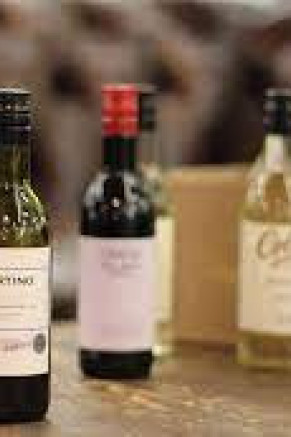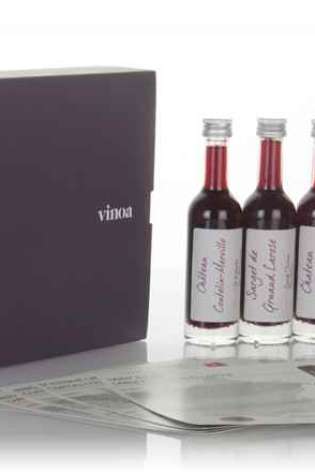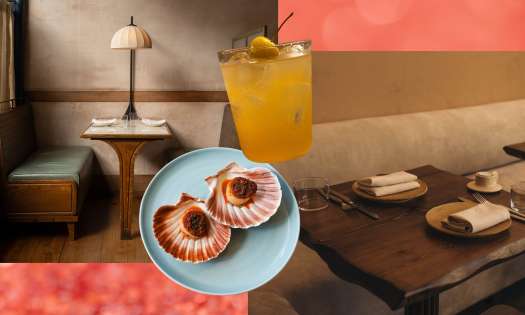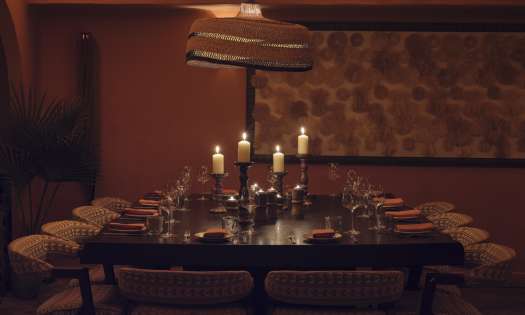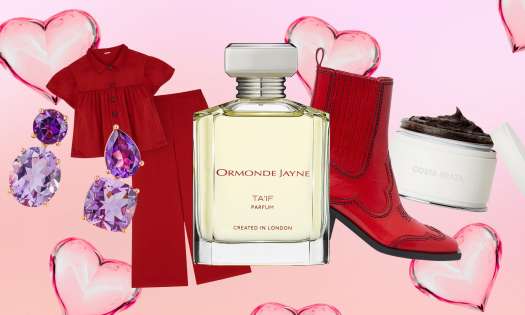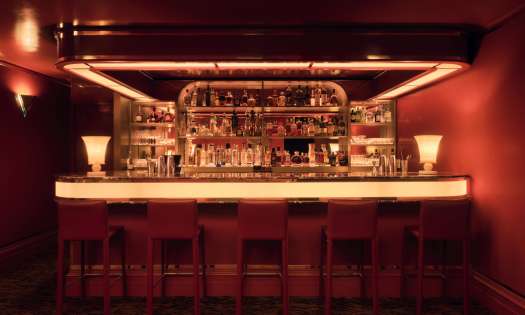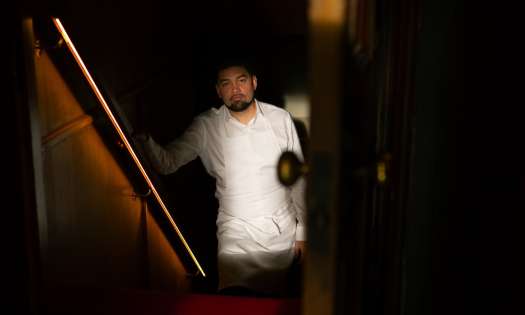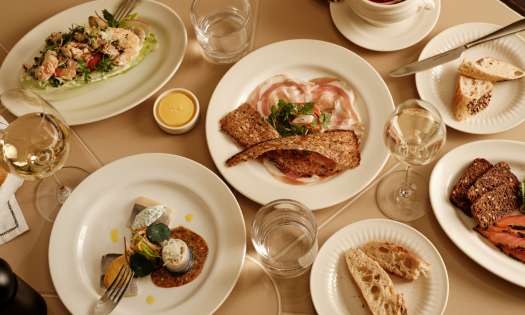Tell us how it all started:
I have worked in wine for more than 20 years and started in wine education for the B2B industry working with restaurants and hotels, and it was there that I found a gap and an opportunity within the B2C industry. I set up shop with my business partner Greg Frileux, who was also my partner in the wine education B2B business. Essentially, we complement each other well, he is the brains guy and I am the ideas man.
How would you describe the Vinoa experience?
The Vinoa experience is reinventing the way people buy premium wines - bringing back the offline of traditional wine shops where you sample unique wines, in every sense of the word - artisan, handcrafted, remarkable wines - the space where a customer can hear the stories behind what they are drinking and get a little bit of education at the same time. That is what would happen in traditional wine shops. You go in and have a few bottles of wine and taste it and go “I like that, I’ll have a bottle of that”. So we wanted to build on the tradition of the offline experience and add an advantage, that of the convenience of not having to carry bottles of wine with you. There is also an advantage in pricing, since we do not have a bricks and mortar business we are able to get better priced wine, especially in the UK.
How do you source your wines and do you have your ‘guinea pigs’ taste the samples before they go out to customers?
For every box, we are going to taste about 80 to 100 wines and then out of those 80, I bring it down to about 25-30. I try to leverage my team’s thoughts and ideas as much as possible, because our wines are aimed at a larger target of people who enjoy wine and would like to learn more, not just the sophisticated connoisseur. In other words I cannot limit myself to my personal style of wines I need to go for wines that are going to please a larger audience. I also take a few people from offices next door and I make them taste wines without telling them anything about them – I look at their faces and I ask them what they think. So we actually have a little selective group of people, an informal focus group of sorts consisting of people who love wine.
We look at wines that retail at 10-20 pounds and they have got to be remarkable, they have got to be, at least to some extent, environmentally friendly and sustainable - that is important to me because I think that it is important that our children will be able to drink good wine in the future. In the end, it is about making remarkable wines accessible to our customers.
As for myself, I taste at least 150 wines a month in total, because I taste wines today that are never going to be in a box before 8 months. I go to wine tastings of different wine importers, and I taste as much as I can within the given time frame.
That is a lot of testing - how does this affect your palate?
Yes, it is actually a hard job. So I start first thing in the morning at 9am. I taste about 50 wines, then my palate kind of goes, the smell goes, but I will try again.
How do you communicate wine language to your consumers who are less knowledgeable when it comes to wine?
We have got a lot of educational content – fun, interactive, relaxed. I think it is the same with science – when somebody knows about science they try to be passionate about it, they try to be exact at the cost of not confusing their students and it is the same with wine. Some people try to be too exact. Do not talk about the exceptions, talk about the general rule, without dumbing it down. I think our educational content is absolutely exceptional – it is fun and people love it, they just love it. The kind of feedback we have for example is from a woman, and she told me that “every time I get my Vinoa bottle I know I am going to have my 15 minutes – it is my Downton Abbey“ - and I thought, this is cool because she she enjoys our stories about wine because it’s not just about the wine, but everything that goes with it – history, etc. We try to bring stories into it and make it alluring and approachable.
Do you stress being environmentally friendly?
Maybe not enough, we try and tell people to recycle their bottles. We are already looking at whether there is a system whereby we can provide customers with a bonus if they keep the bottles and every 6 months, we’ll give them a little box where they can put all their emptied bottles and ship it to us at no cost. We want to make it as easy as possible and we want to make sure people can recycle. So we will try and do that - we can even reuse the bottles ourselves – that is the way it should be done, so we can reduce the carbon footprint of our wine bottles.
We have replaced our magnetic closure boxes as well. People thought we were trying to reduce costs, but in fact the new boxes are environmentally friendly – they are 100% recyclable.
How important are the stories behind each wine sample?
So now there is a slight change – right now we are doing it regionally but we are changing because we have had feedback that the style of wines we have presented has been too homogenous for our customers and that when discovering new wines, people want variety. For that reason we have come up with themes, for example wines that have an ocean influence. We will take a wine from Australia in Tasmania near the ocean and pair it with one from Chile and one from Bordeaux; thus giving people the variety they desire with an interesting common denominator. This way we aim to amaze our customers month in month out!
What are the plans for the future of your business?
Our aim is to build a strong UK business and introduce new products such as a premium box, which is going to be for people who get hooked on wine and want to take it to the next level a higher level. And then, in about 18 months we aim to enter the US and Asian markets. In Asia there is a huge appetite for wine knowledge and so for us it makes sense – people are ready to pay for quality that is exceptional and the same is true for the US but unfortunately less true for the UK market.
Would you ever consider venturing into other alcoholic categories?
No, you have got to focus on what you are great at. I have studied wine, I have worked in wine for 22 years, all over the world and I know about cognac, Armagnac, rum (I adore it), but I think there is a lifetime of work to be done in wine and still I will only have scraped the surface.
